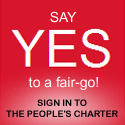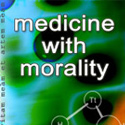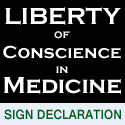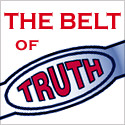2016 a year of decision that will shape our future [6]. Why didn’t you vote for me?
2016 a year of decision that will shape our future [6]. Why didn’t you vote for me?
(Not me specifically but for any Christian candidate in a Christian party.)
- I did. I put you as [2]
- You don’t have a strong economic policy
- The bad things you talk about won’t ever happen
- This election is critical between the two major parties – I’m not going to risk my vote
- You Christian parties should unite together
- When you do get elected sometimes you support Labor in their policies
- You gave your number two preference for this lower house seat to a Labor candidate
- You supported Liberal in turning back the boats
- You criticised Family First
- I believe in separation of church and state
- The Church should not get into politics
- I don’t believe in a Theocracy
- You should join the Liberal party and be a candidate for them
- When I finally got you to answer the question I realised you have reservations about Islamic immigration and prefer “Christian” refugees over Muslim
Finally, when I find someone who is happy with answers to 2-14 above (for such answers see below) they still won’t vote for me
- I was scared the “other” major party would get in so I put you as [2].
Oh dear, we do face an uphill battle. Is it worth it? Yes we can continue to support Liberal and get candidates in there as well and thereby influence their policies directly instead of indirectly but we will automatically lose some voters if we do because they are long-time Labor supporters (e.g. Catholics) who vote that way because their fathers did and because of the Christian origins of the Labor and Union movements for oppressed workers.
We need to be here for the long term. For when the choice is so obviously between good and evil that Christians and others (Muslims too) will want to have Christian party candidates in to influence the major parties and hold the balance of power. We must not grow weary.
We can change the direction of our country in just one election if Christians would vote for us – particularly instead of Greens.
Now, an attempt to answer these objections.
- I did. I put you as [2]. A wasted vote for us. Let me remind you – and you MUST get your head around this – that if you put us as [1] then your vote transfers to the next party of your choice in FULL value. The only way you “lose” your vote is if we win. When will you understand this and also teach other people? You are wasting a fundamental opportunity that we may not always have to get Christians into parliament.
- You don’t have a strong economic policy. You’re right. We are not economists (or war strategisers) and whatever policies we may adopt in this area except from “motherhood” statements are going to further fragment our vote. We must stay strong on the issues that differentiate us from other parties.
- The bad things you talk about won’t ever happen. But they are and they have. Take the 2008 abortion law in Victoria. 24 amendments were rejected (e.g. banning partial-birth abortion) and doctors are compelled to participate in the referral process and this was also in defiance of their own rights charter.
- This election is critical between the two major parties – I’m not going to risk my vote. See 1 above.
- You Christian parties should unite together. I agree. But AC policy is firmly grounded in Biblical principles and the lack of this kind of policy has resulted in some bad choices by other parties just to get votes. We cannot compromise in such. But we are learning to cooperate better. Also see 9 answer.
- When you do get elected sometimes you support Labor. There are certain matters that come up in parliament where the choice is so clearly between right and wrong – more than just the “mechanism” of “how can we best implement this” that we may have to side against the government of the day to ensure that which is honouring to God and in line with Christian belief.
- You gave your number two preference for this lower house seat to a Labor candidate. I lost a lot of votes when I ran for Moore and we recommended preferencing a Catholic Labor lady who was very strong on all the life issues that I am so passionate about whereas the Liberal candidate was in favour of destructive embryo research and cloning.. I received so much criticism from Christians at the polling booth and they refused to vote for me.
- You supported Liberal in turning back the boats. Because of the divisive opinions about the best way of solving the boat refugee problem we did not have specific policies over and above that we absolutely genuinely want to help genuine refugees – but not to sabotage our specific voluntary intake of refugees (we want to increase that) and not to have more fatalities at sea and to stop the moneymaking racket by those facilitating this traffic. I’m sure we are united to “love our neighbour” but we may vary in the best way of doing this. This also applies to helping the poor in other places e.g. equip him to fish.
- You criticised FF. For one of their candidates in WA supporting abortion and a few other matters that are best left behind us. We are united in the God issues.
- I believe in separation of church and state. Really? That the church must have no voice when the nation is heading down the path of not only permitting evil but making it compulsory? What an abrogation of responsibility! Wilberforce, Bonhoeffer and MLK Jr would be horrified. And to vote for candidates – and thereby support them and their actions – who legislate for evil against our children? Concerning whom Jesus said it would be better for them to be cast into the sea with a millstone around the neck? The original intention of the church and state issue was that the state must not interfere with individual freedom of religion.
- The Church should not get into politics. But every Christian of voting age has to make a decision every election. Just as should exercise Christian responsibility in our behaviour, where we go, who we partner with etc so we face choices – sometimes between florid evil and good and we must make a choice.
- I don’t believe in a Theocracy. If you mean when Christians are the major ruling party the neither do I – except under Jesus as ruler. But there is no risk of a Christian party being the governing party. That is a pretty poor excuse for not voting for me to be a voice for righteousness.
- You should join the Liberal party and be a candidate for them. It’s not so easy to get preselected over a long-serving Liberal supporter and you usually have to be a person of prominence to attract a vote and it requires absolute dedication to the task to the exclusion of other Christian tasks. It needs to be a “call”.
- When I finally got you to answer the question I realised you have reservations about Islamic immigration and prefer “Christian” refugees over Muslim. Yes, our primary focus must be to bring them to Jesus but I do have reservations about bringing in those are fundamentally opposed to democratic rule and thus destroy our foundational freedom by introduction of Sharia Law and destroy our country. People who want to come here should be prepared to support freedom and democracy and say so.
Another area where the Christian vote will split and people will not support us relates to the conflicting priorities of free trade, tariffs to preserve our primary industries, and all who work therein and the Micah Challenge. It was at a meeting that I realised this was another area of potential fragmentation of support and wrote the below.
ULTIMATE CRISIS
A Meditation in the Gum Leaf Chapel, Vision Valley NSW, CDP Convention August 2005.
What is the greatest crisis that humanity has ever faced?
No, it’s not free trade – or other important issue for which there is no really satisfactory answer and on which we cannot always agree.
No, it’s not the homosexual agenda or the erosion of family and marriage for which there are answers and on which we can agree and which are vitally important.
It’s not multiculturalism or terrorism or nuclear war.
It’s not even embryo destruction or abortion or euthanasia although these come close.
It is our rebellion against God, including our rebellion against the pinnacle of His Creation and that is who He created us to be – our selves – in whom He planted His Image.
It is ourselves trying to tear out His Image and to deny it was ever there.
It is to credit ourselves as the great designers, as the great controllers, to separate spirit from body, to tear out our chests as CSLewis wrote in his epic lectures on The Abolition of Man where he talks about men without chests.
It is mankind’s rejection of what it means to be human and to be created in The Image of God. It is to reject the intrinsic value and dignity of every human being at every stage of life and in every state of disability and dependency.
It is what we do with our God that really matters. The descent into anarchy to be destroyed by the barbarians or disease or nuclear war may be what God does to us as a result of our rebellion.
What then is our task? It is to proclaim and uphold the intrinsic value and dignity of every human being at every stage of life and in every state of disability and dependency, from fertilisation to life’s natural end. This is more fundamental than the introductory articles of the Universal Declaration of Human Rights: All human beings are born free and equal in dignity and rights…
We have a choice – to choose life or to choose death.
Now as it happens this gives authority for everything else we believe in fighting for – from life issues to countering the radical agendas to looking after the poor and people in distress – as per this excerpt from a previous paper:
So much flows from the position that all human life is of value once we establish it. To value people is to respect them, to aid their freedom, to deliver them from bondage and to care for them at times of vulnerability. So we include not just embryo destruction, abortion, cloning and euthanasia, but also how we look after the less privileged in our world. We include people caught in compulsive gambling, heroin addiction, and prostitution. We include pregnancy and motherhood, the ideal basis for which is the security of stable and nurturing marriage. Likewise we affirm that children are best protected and nurtured in a stable family. We value personal freedom, but not at the expense of others. We hold that to love our neighbour as our self is the basis for a cooperative and just society.
It encompasses all. In our relationship with the non-Christian public we need to promote the practical outworking of this underlying foundation but in our working with each other and with the Christian community we need to highlight this fundamental truth and the terrifying consequences of failure to defend it.
Lachlan Dunjey 21 August 2005.






